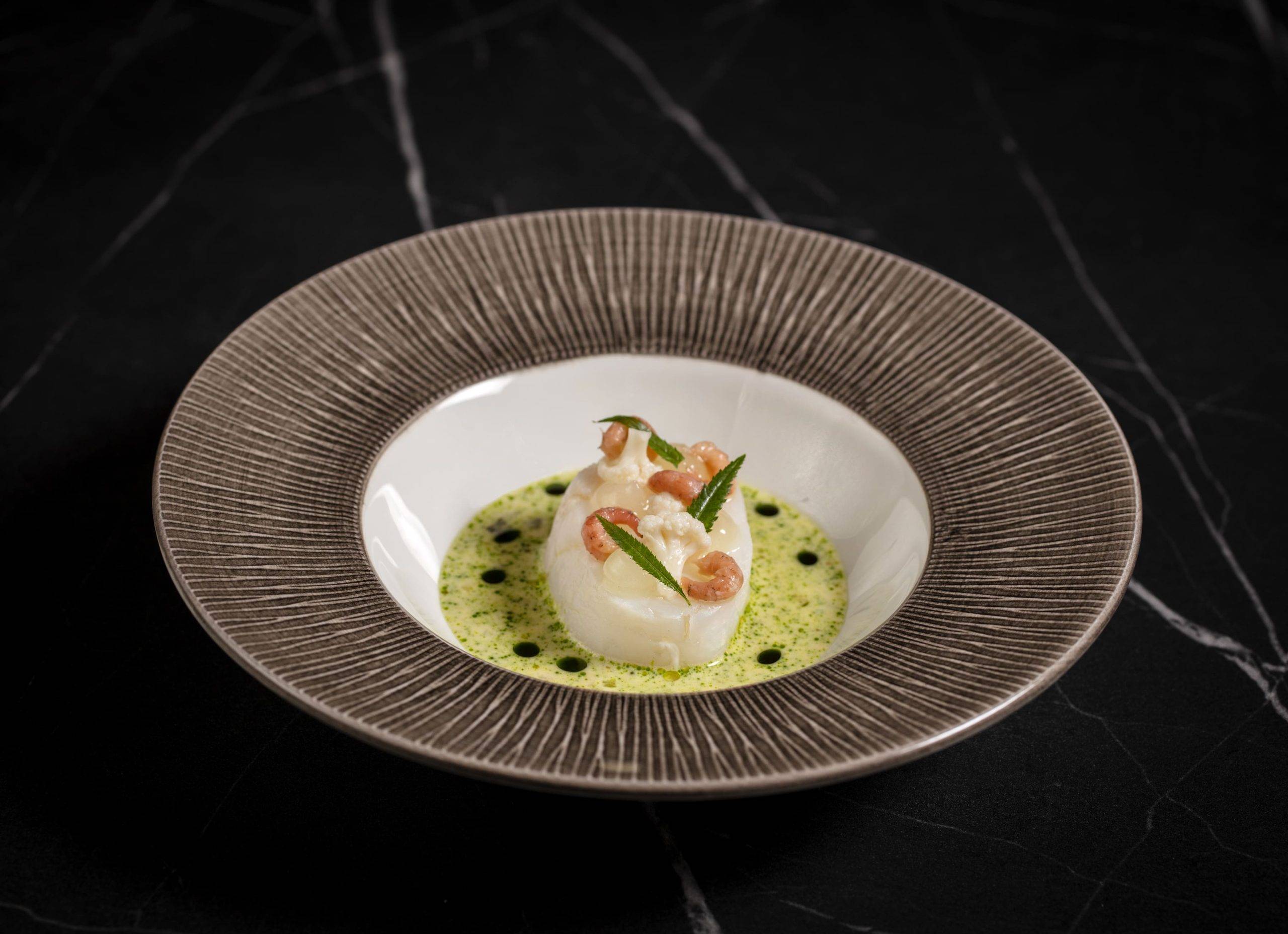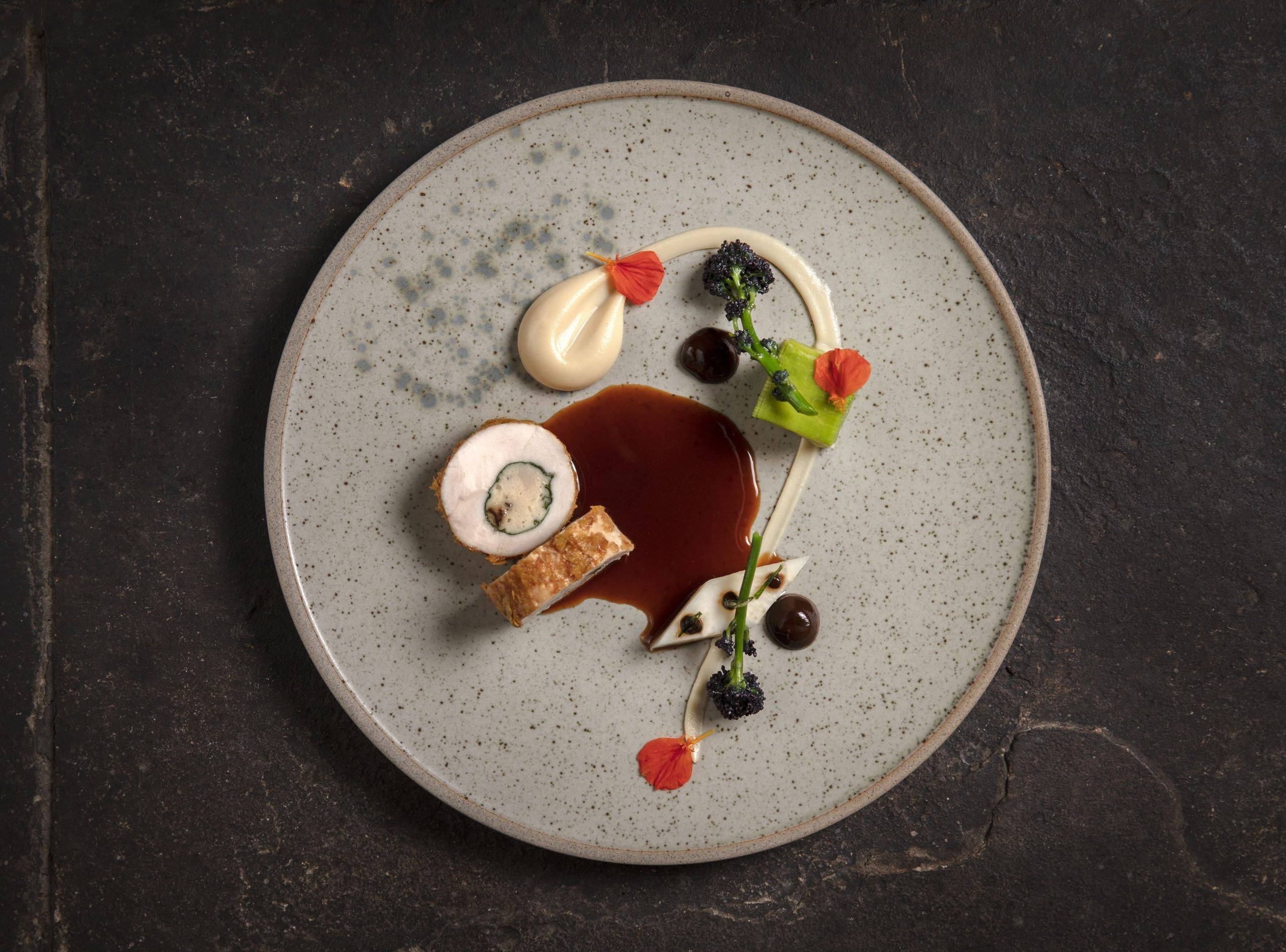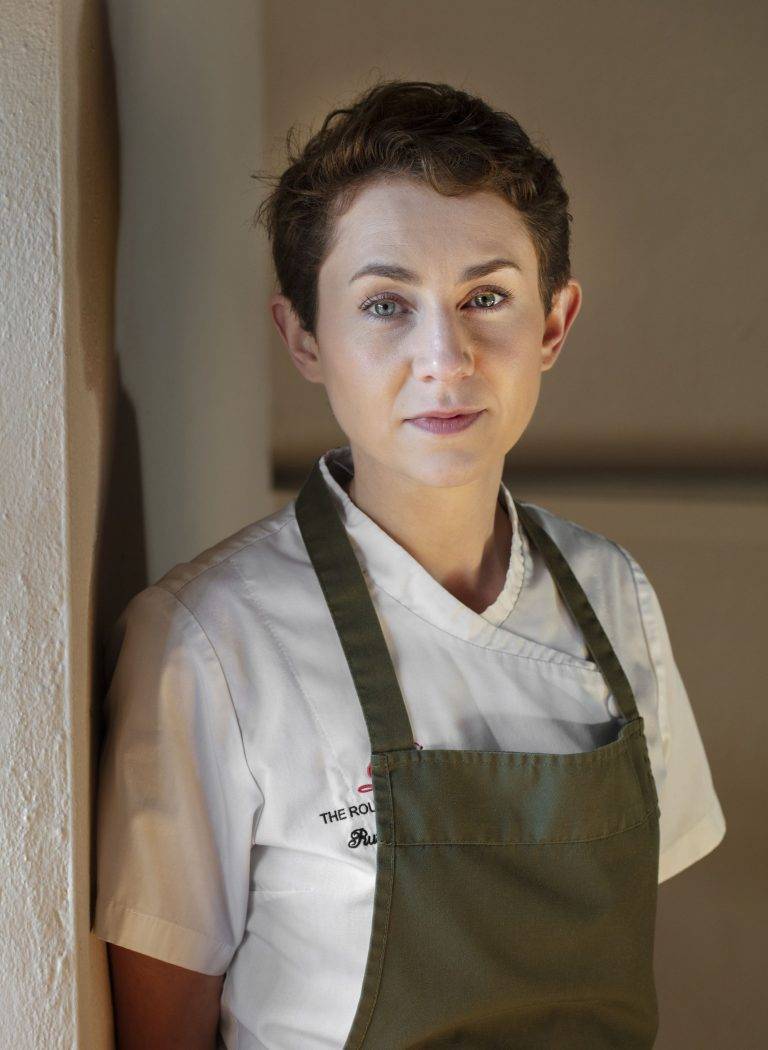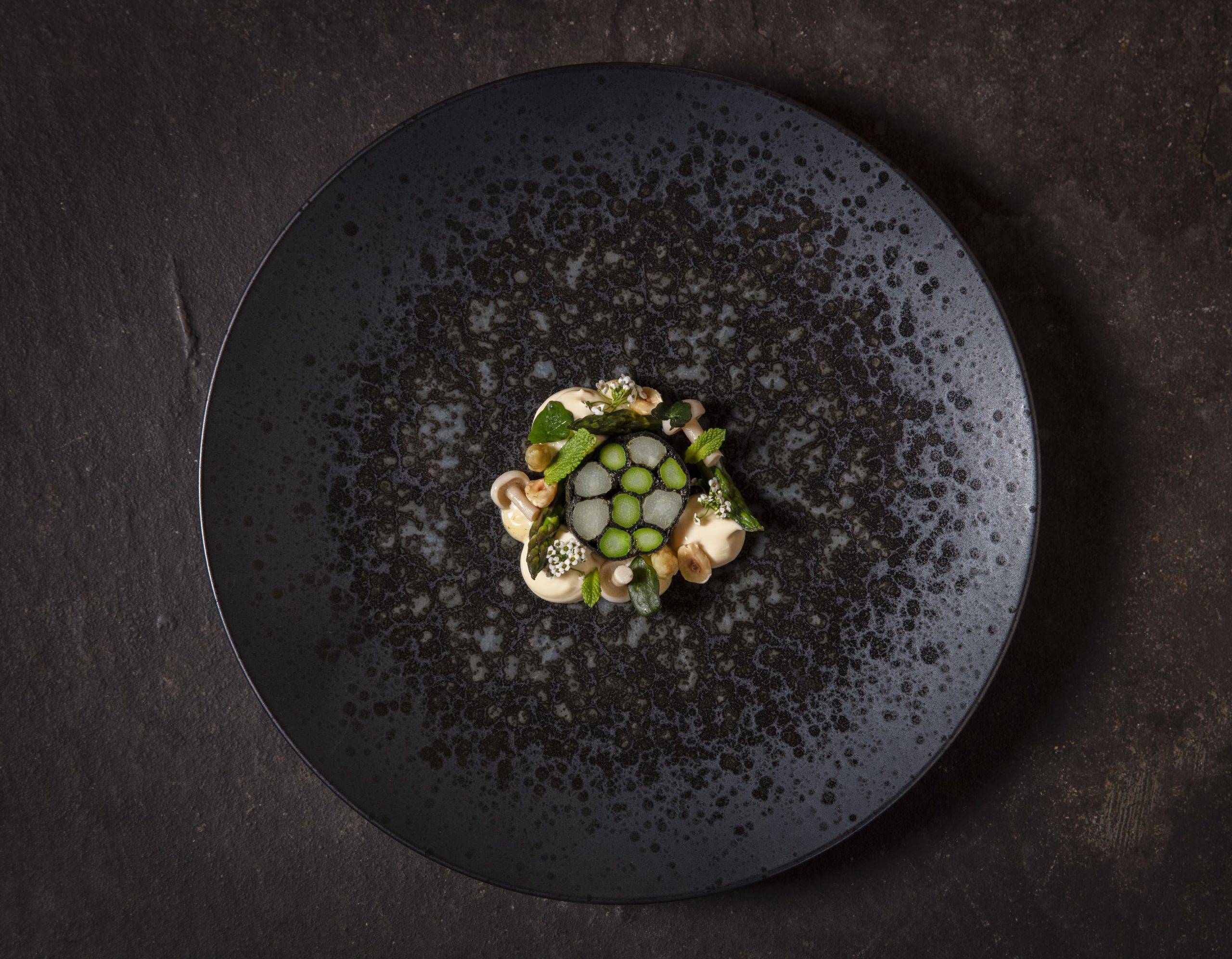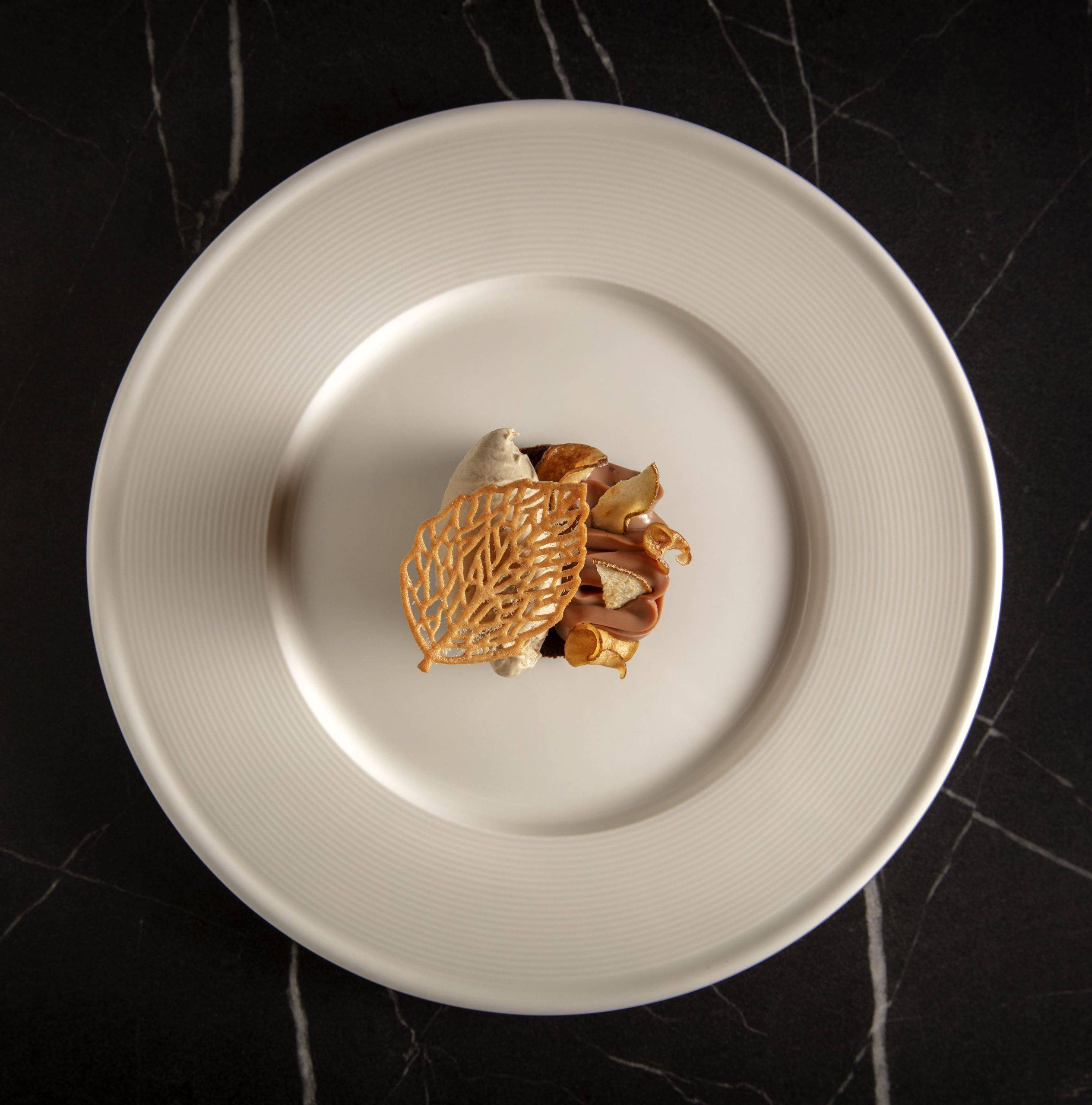From the moment Ruth Hansom first rolled up her sleeves to help in her family’s kitchen in North Yorkshire, it was clear she was destined for a life in food. Her passion for growing fruits and vegetables in her parents’ back garden quickly blossomed into a love for cooking, planting the seed for a journey that would take her to the pinnacle of British culinary achievement. A standout talent from the start, Ruth competed in the Future Chef competition as a teenager, which opened the door to a world of opportunities. By the age of 16, she was on a train to London, determined to carve her path as a chef, and soon found herself honing her craft at the iconic Ritz London as part of the Royal Academy of Culinary Arts Apprenticeship.
What followed was a dazzling rise through the culinary ranks. From earning the title of the first-ever female Young National Chef of the Year to representing the UK on the global stage at the World Skills Finals and securing a place as a finalist in BBC’s Great British Menu, Ruth’s accolades speak volumes about her talent and determination. Her time at The Princess of Shoreditch cemented her reputation as one of the world’s leading young talents, earning the restaurant a coveted spot in the Michelin Guide and 3 AA Rosettes. Beyond the awards, Ruth has always brought a distinctive style to her cooking, balancing innovation with a deep respect for provenance and sustainability.
After a decade in London, Ruth returned to her roots in North Yorkshire, where her time at the Swinton Estate deepened her connection to local ingredients and traditions. In February 2024, Ruth launched her most personal venture yet: Hansom Restaurant and Wine Bar. Here, she brings her journey full circle, creating a dining experience that reflects her years of learning, experimenting, and perfecting her craft.
FOUR sits down with the chef to find out more…
Your love for food began at a young age, growing produce in your parents’ garden. How did these early experiences shape your culinary journey and passion for fresh, local ingredients?
I think growing your own really does make you so much more respectful and mindful of your produce. You have a small insight into the work that goes into it, and so you try your hardest to reduce waste and to champion local. It’s also a long process that teaches you the importance of patience when cooking, completing the steps of recipes and not rushing them.
You were just 16 when you moved to London to pursue your culinary education at Westminster College. What was it like transitioning from North Yorkshire to London?
It was a huge culture shock, but one I fell in love with instantly. I’d only been to London once before deciding to move, and so had a lot to learn, but the huge variety of cuisine and the standards excited me so much! North Yorkshire is fast becoming a food destination, though, and I think that if I’d been starting out now, I might not have made the trip to London as there are so many great restaurants here.
You’ve achieved numerous accolades, including being a finalist for National Chef of the Year 2023 and winning the Young National Chef of the Year in 2016/17 as the first-ever female. How have these milestones influenced your career, and what do they mean to you personally?
I first started entering competitions as a way to better my skills; every time you enter, there’s a different brief, something new you need to research and practise. But they also gave me key relationships and connections that allowed me to gain some great experiences. I didn’t know anyone when I first moved, so competing with like-minded people meant making lifelong friends.
Working at prestigious places like The Ritz and Core by Clare Smyth must have been a formative experience. What key lessons did you take away from these roles?
I remember the first time I stepped foot in the Ritz. I was 16, and it was to attend a dinner where I was asked to talk about how The Future Chef programme had helped get me into the industry; I’d never seen anything like it, and after having a kitchen tour, I knew I wanted to work there. I left full of inspiration, and a few weeks later, I was given a list of possible places to complete my Royal Academy of Culinary Arts Apprenticeship. Lo and behold, The Ritz was on that list. Without hesitation, I said I’d like to go! And after an interview, it was finalised. I spent the next 5 years working around the sections. You learn everything – from scratch, no shortcuts. It’s a tough kitchen but you get out what you put in.
You had the opportunity to explore your own style at Pomonas and The Princess of Shoreditch. How would you describe your culinary style, and what inspires your menu creations?
Pomonas was an interesting one for me. It was a lot more relaxed, and you really focused on flavour over anything else. But I found I missed that element of fine dining, and after it was closed during lockdown, the opportunity at The Princess came around. It was the best of both worlds; we had a pub downstairs that served elevated classics, wellingtons, trifles, etc., and then you’d come up some unassuming cast iron spiral stairs into an elegant dining room where we served tasting menus. This allowed us to really utilise whole animals and produce. We’d plan our tasting menu, and then the pub menu would utilise secondary cuts. The biggest thing that inspires my cooking is the seasons, along with proper sauce-making.
During lockdown, you pivoted by making and delivering wellingtons, cheese, and charcuterie. How did this experience change your perspective on the industry and your approach to food?
I loved being able to do something during lockdown; when you are used to long days in the kitchen, going to nothing is excruciating. But while you received feedback from things you’d sent and delivered, nothing beats talking to a guest face to face when they’ve just finished a meal.
After 12 years in London, you returned to North Yorkshire and completed a residency at Swinton Estate. How did this experience influence your culinary approach?
With the UK’s largest walled garden and 20,000 acres, Swinton was nothing like I’d seen before. I was shown new produce like Saskatoons, Bull Rush and Siberian Kiwis. I also learnt a lot more about seasonality, not just your four seasons but down to the weeks and sometimes days that produce is at its best. Having our own game larder meant you could use the whole animal with ease. I’ve recently had some menu covers made using the deer hide from Swinton.
Most recently, you opened Hansom Restaurant and Wine Bar with your husband. Can you share your vision for this new venture and what diners can expect from the experience?
We want to champion local as much as possible, from tableware to produce to drinks. We have an ever-changing tasting menu throughout the week and a roast on Sundays, as well as a wine bar that allows us to showcase Yorkshire cheese and charcuterie. Service is relaxed and friendly while remaining knowledgeable.
With such a dynamic career, what are your long-term goals in the culinary world, and where do you see yourself making the most impact in the next few years?
My main focus now is the restaurant; the focus is to have very happy returning guests, and any accolades while trying to achieve this would be a bonus.
What advice would you give to young chefs, particularly women, who are just starting out in the industry and aspiring to reach the levels of success you’ve achieved?
Work hard; there are so many opportunities out there, so try to experience as much as you can. Find a kitchen that’s right for you because it can make all the difference. I’ve seen so many chefs fall out of love for the industry because they weren’t in the right environment.
To find out more about Ruth Hansom and her restaurant, visit the links below…
Hansom Restaurant and Wine Bar
7-9 N End
Bedale DL8 1AF
United Kingdom
Web: hansomrestaurant.co.uk
Email: info@hansomrestaurant.co.uk
Tel: +44 7938 708604
Online Bookings: hansomrestaurant.co.uk/reservations
Instagram: @hansom.bedale
Facebook: @Hansom RestaurantandWineBar

